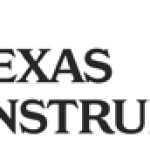- Settore: Semiconductors
- Number of terms: 7260
- Number of blossaries: 0
- Company Profile:
Texas Instruments (TI) designs and manufactures analog and digital semiconductor IC products for the world market. In addition to analog technologies, digital signal processing (DSP) and microcontroller (MCU) semiconductors, TI designs and manufactures semiconductor solutions for analog and digital ...
A 1-bit flag that indicates which half of transmit buffer transmitted. The XH bit can be read when an XINT interrupt occurs (interrupt programme or IFR polling). At reset, XH = 0. This bit is stored in the BSP control extension register (SPCE).
Industry:Semiconductors
A memory-mapped register that specifies the current count for the on-chip timer. The TIM is decremented once after each timer prescaler counter (PSC) decrement past 0. When the TIM is decremented past 0 or the timer is reset, the TIM is loaded with the contents of the timer period register (PRD) and an internal timer interrupt (TINT) is generated.
Industry:Semiconductors
A window that provides an area for you to enter commands and for the debugger to echo command entry, show command output, and list progress or error messages.
Industry:Semiconductors
Process of inserting code for a function at the point of call.
This saves the overhead of a function call, and allows the optimizer to optimise the function in the context of the surrounding code.
Industry:Semiconductors
A 1-bit flag that resets the on-chip timer. When TRB = 1, the timer counter register (TIM) is loaded with the value in the timer period register (PRD) and the timer prescaler counter (PSC) is loaded with the value of the timer divide-down register (TDDR) bits. This bit is stored in the timer control register (TCR).
Industry:Semiconductors
A memory-mapped register that specifies the main period for the on-chip timer. When the timer counter register (TIM) is decremented past zero, the TIM is loaded with the value in the PRD.
Industry:Semiconductors
A worldwide digital communications network evolving from existing telephone services. Its goal is to replace current telephone lines that require DA conversions with totally digital switching and transmission facilities capable of carrying a variety of data—from voice to computer transmissions, music, and video.
The ISDN is built on two main types of communications channels: a B channel, which carries data at 64 Kb/s, and a D channel, which carries control information at either 16 or 64 Kb/s. Computers and other devices connect ISDN lines through simple, standardised interfaces. When fully implemented (possibly around the year 2000), the ISDN is expected to provide users with faster, more extensive communications services.
Industry:Semiconductors
Programme code that can be executed concurrently by more than one task. Reentrant code contains no task-specific data.
Industry:Semiconductors
A 1-bit flag that resets the serial port receiver.
At reset, RRST = 0. This bit is stored in the serial port control register (SPC) and TDM serial port control register (TSPC).
Industry:Semiconductors
A memory-mapped register that specifies the number of wait states for the input/out (I/O) port. The IOWSR can be mapped in one of two ways as specified by the BIG bit in the wait-state control register (CWSR). At reset, IOWSR = FFFF.
Industry:Semiconductors
